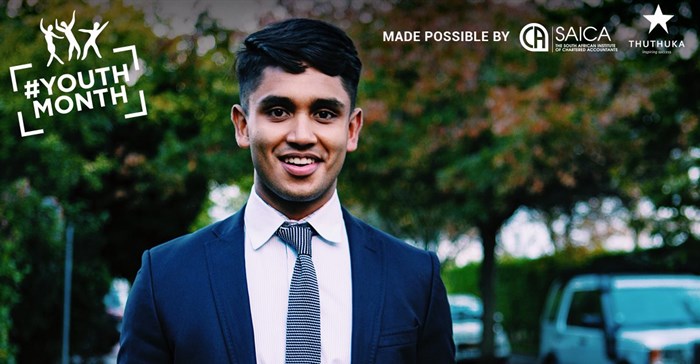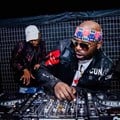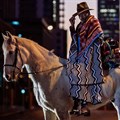#YouthMonth: Brands need to reverse-engineer the way they think about marketing

Here, Pillay tells us more about some of the highlights of his career so far and shares his views on diversity and how the industry as a whole can improve by actively hiring more diversely.
Tell us a bit about yourself and your background.
I am a 24-year-old global citizen: a product of a Mexican mother and a South African father of Indian descent. I was born in Johannesburg, attended boarding school at St Alban’s College in Pretoria and graduated with a Bachelor of Business Science in Marketing at the University of Cape Town in 2018. I also have a far more intelligent older sister who is currently completing her PhD at Wits.
My theme for 2020: growing [others] exponentially ��✊�� pic.twitter.com/HiqmBgwTzA
— Sashin Pillay Gonzalez ���� (@SashGonzalez) December 30, 2019
My primary focus at Google is to work with SMEs (small and medium enterprises) in the region to unlock potential growth opportunities through online and digital strategies.
Outside of work, I am passionate about sport, local music, local fashion and homegrown startups - I love seeing young Africans succeed!
What are some of the highlights in your career so far?
As you’ve probably gauged, I’m still really young and definitely still have a lot to add to the list, but here are a few...
- I interned at OrderIn (the food delivery company) and was responsible for planning and executing digital advertising for the student market in Cape Town. Startups are great places to learn.
- I spent time with the marketing team at Nando’s where I learnt from and engaged with one of South Africa’s favourite brands - “it’s the people that make the chicken!”.
- My group received the 2018 Research Excellence Award at UCT for the best Honours thesis that we did in collaboration with Nando’s.
- At Google, I have been fortunate enough to work with some really amazing local businesses, but the most inspiring experience to date has to be working with MaXhosa Africa. I was able to attend their show at New York Fashion Week last year too!
- I must add, meeting Trevor Noah after his keynote address at a Google conference in California wasn’t too shabby either...
What do you think the industry can improve on and how can young people help bring this change about?
In his keynote address at the 2018 Loeries, Mzamo Masito (CMO of Google Africa) said: “If we don’t deliberately, intentionally, proactively include… we unintentionally exclude.”
I’m often reminded of this from @mzamomasito’s keynote at the 2018 @loeries. Profound. pic.twitter.com/guIox38kdb
— Sashin Pillay Gonzalez ���� (@SashGonzalez) June 6, 2020
In line with this, I think the industry as a whole can improve by actively hiring more diversely. Diversity can take many different forms: race, culture, religion, gender, age, sexual orientation and class (to name a few). I think that we live in a society where there is an increasing need for differences to be acknowledged, understood and celebrated. Hence, if companies do not hire diversely, their idea of reality is inherently biased, and they will ultimately struggle to understand the demands of the modern-day market.While the decision to hire more diversely will most likely fall in the hands of existing (and often older) leaders, young people within these organisations can help by identifying and challenging the hiring trends that exist and by bringing the need for more diversity to the attention of their leaders.
Why do you think it’s important for brands to support and collaborate particularly with young creatives?
You just have to look at the numbers: we are the world’s youngest continent with almost 60% of Africa’s population being under the age of 25. South Africa’s median age is ±27.
Whether brands like it or not, we, young people are the target market, and no one can authentically appeal to and resonate with young people like young people.
What do you think is key for brands to keep in mind when marketing to the youth?
As a young person, it is often easy to identify when a brand is only using young people to deliver their message. It feels inauthentic and forced. Brands need to make sure that they include and consult young people throughout the entire process: from concept ideation to fleshing out a strategy, to creating the product/service and then to ultimately also delivering the message.
I think brands need to reverse-engineer the way they think about marketing. Marketing, as a function, should lead with insights into what product/service gets created/delivered in the first place.
 Who are some of your role models?
Who are some of your role models?I have many, but I’ll attempt to name a few:
- Close to home: my late grandad, who was known and loved in his community as a serial networker. He always knew someone who could help you out and he’d make sure that you’re connected.
- Creatives who are paving the way and opening doors for other South Africans: Trevor Noah (host of the Daily Show); Black Coffee (DJ); Laduma Ngxokolo (designer of MaXhosa Africa); Nelson Makamo (artist).
- Industry leaders who are challenging the norms: Khaya Dlanga (CMO of Rain); Mzamo Masito (CMO of Google Africa); Nunu Ntshingila (CEO of Facebook in Africa); Doug Place (CMO of Nando’s).
What advice would you like to convey to all the newbies trying to crack into the industry?
I was offered the following advice by one of my role models:
You have to be obsessed with the art and the science behind marketing. Creativity alone is not enough. Don’t shy away from understanding the numbers: how do you measure the impact of your idea? What are the clear KPIs? How does your idea impact cash flow, the P&L? What is the forecasted ROI?Connect with Pillay on LinkedIn and visit his blog, Learning with Sash and you can also follow Pillay on Twitter.


































